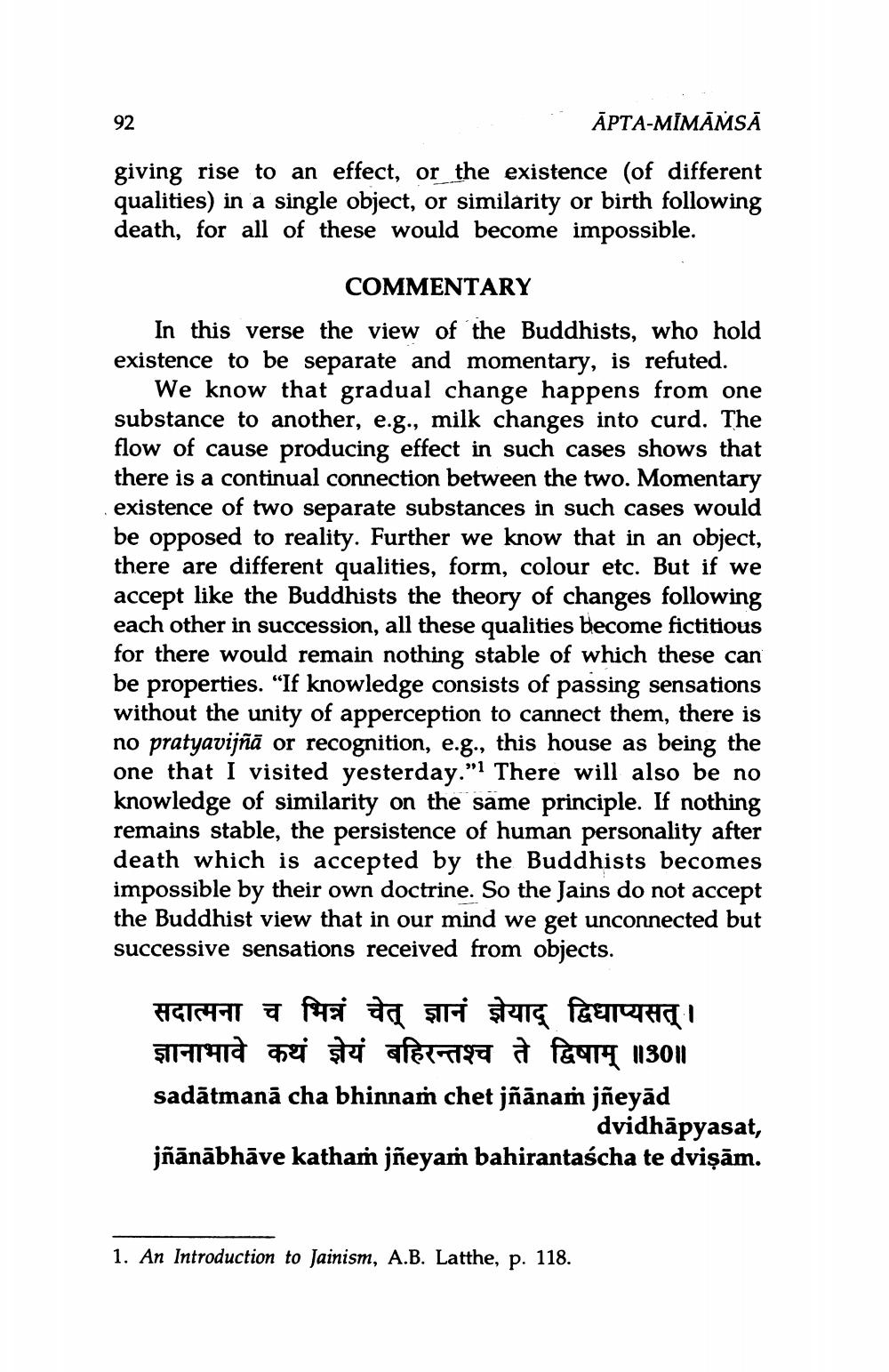________________
92
ĀPTA-MĪMĀSĀ
giving rise to an effect, or the existence (of different qualities) in a single object, or similarity or birth following death, for all of these would become impossible.
COMMENTARY In this verse the view of the Buddhists, who hold existence to be separate and momentary, is refuted.
We know that gradual change happens from one substance to another, e.g., milk changes into curd. The flow of cause producing effect in such cases shows that there is a continual connection between the two. Momentary existence of two separate substances in such cases would be opposed to reality. Further we know that in an object, there are different qualities, form, colour etc. But if we accept like the Buddhists the theory of changes following each other in succession, all these qualities become fictitious for there would remain nothing stable of which these can be properties. "If knowledge consists of passing sensations without the unity of apperception to cannect them, there is no pratyavijñā or recognition, e.g., this house as being the one that I visited yesterday." There will also be no knowledge of similarity on the same principle. If nothing remains stable, the persistence of human personality after death which is accepted by the Buddhists becomes impossible by their own doctrine. So the Jains do not accept the Buddhist view that in our mind we get unconnected but successive sensations received fro
सदात्मना च भिन्नं चेत् ज्ञानं ज्ञेयाद् द्विधाप्यसत्। ज्ञानाभावे कथं ज्ञेयं बहिरन्तश्च ते द्विषाम् ॥30॥ sadātmanā cha bhinnaṁ chet jñānam jñeyād
dvidhāpyasat, jñānābhāve katham jñeyam bahirantaścha te dviņām.
1. An Introduction to Jainism, A.B. Latthe, p. 118.




